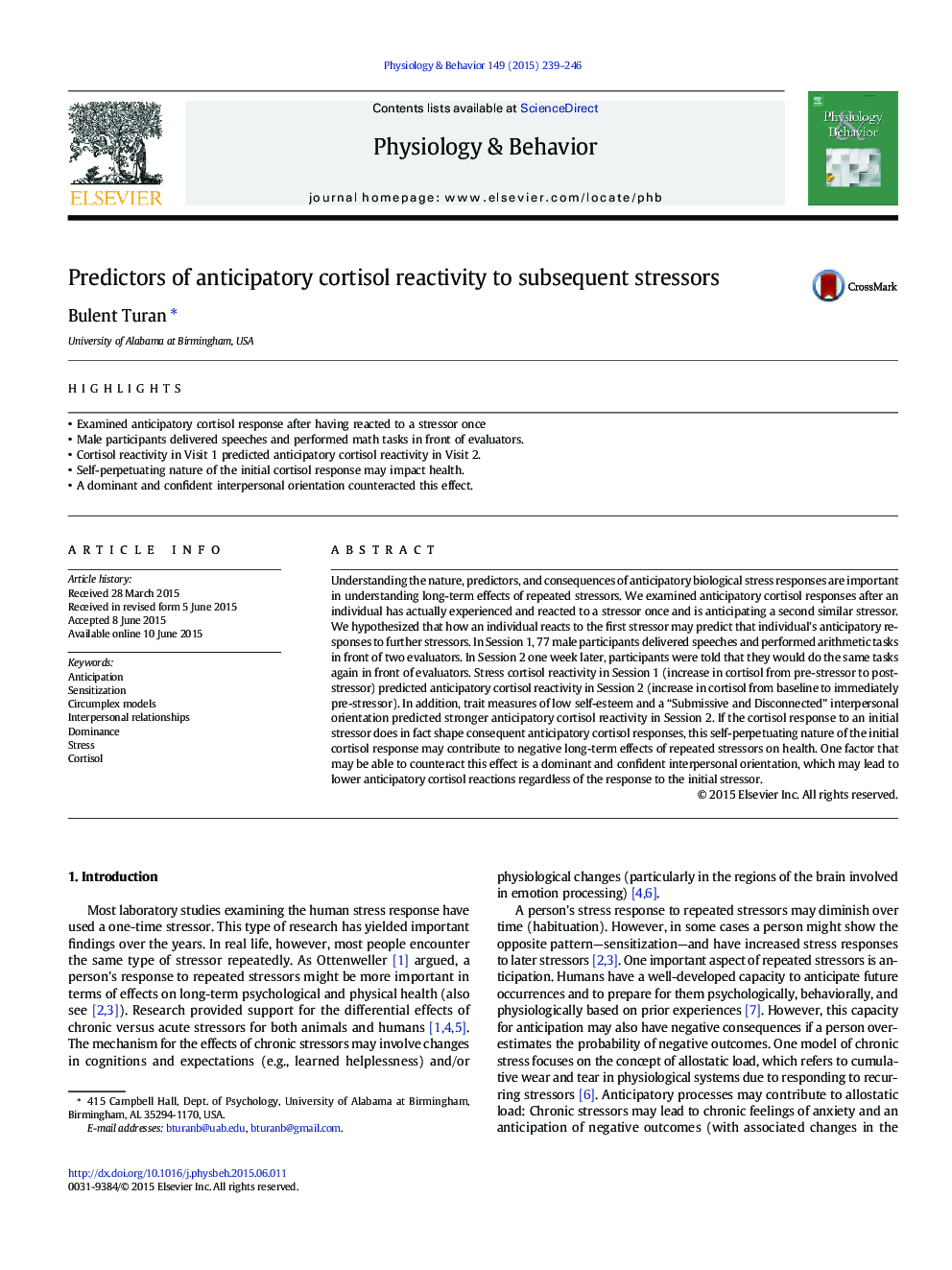| کد مقاله | کد نشریه | سال انتشار | مقاله انگلیسی | نسخه تمام متن |
|---|---|---|---|---|
| 5923588 | 1571168 | 2015 | 8 صفحه PDF | دانلود رایگان |
- Examined anticipatory cortisol response after having reacted to a stressor once
- Male participants delivered speeches and performed math tasks in front of evaluators.
- Cortisol reactivity in Visit 1 predicted anticipatory cortisol reactivity in Visit 2.
- Self-perpetuating nature of the initial cortisol response may impact health.
- A dominant and confident interpersonal orientation counteracted this effect.
Understanding the nature, predictors, and consequences of anticipatory biological stress responses are important in understanding long-term effects of repeated stressors. We examined anticipatory cortisol responses after an individual has actually experienced and reacted to a stressor once and is anticipating a second similar stressor. We hypothesized that how an individual reacts to the first stressor may predict that individual's anticipatory responses to further stressors. In Session 1, 77 male participants delivered speeches and performed arithmetic tasks in front of two evaluators. In Session 2 one week later, participants were told that they would do the same tasks again in front of evaluators. Stress cortisol reactivity in Session 1 (increase in cortisol from pre-stressor to post-stressor) predicted anticipatory cortisol reactivity in Session 2 (increase in cortisol from baseline to immediately pre-stressor). In addition, trait measures of low self-esteem and a “Submissive and Disconnected” interpersonal orientation predicted stronger anticipatory cortisol reactivity in Session 2. If the cortisol response to an initial stressor does in fact shape consequent anticipatory cortisol responses, this self-perpetuating nature of the initial cortisol response may contribute to negative long-term effects of repeated stressors on health. One factor that may be able to counteract this effect is a dominant and confident interpersonal orientation, which may lead to lower anticipatory cortisol reactions regardless of the response to the initial stressor.
Journal: Physiology & Behavior - Volume 149, 1 October 2015, Pages 239-246
